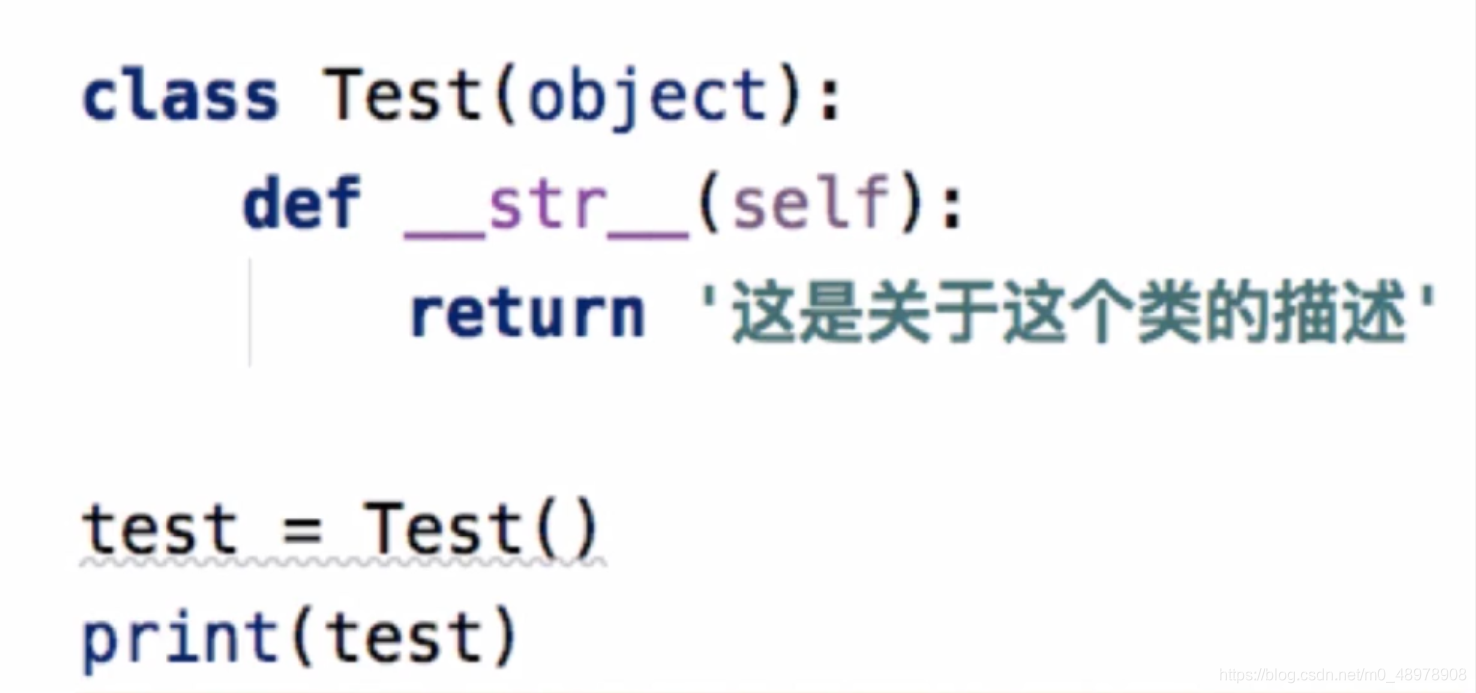目录
__str____getattr____setattr____call__
__str__函数
- 如果定义了该函数,当print当前实例化对象的时候,会返回该函数的return信息
- 可用于定义当前类的描述信息
- 用法:
def __str__(self):
return str_type
- 参数:无
- 返回值:一般返回对于该类的描述信息

__getattr__函数
- 当调用的属性或者方法不存在时,会返回该方法定义的信息
- 用法:
def __getattr__(self, key):
print(something.….)
- 参数:
- 返回值:
- 可以是任意类型也可以不进行返回

__setattr__函数
def __settattr__(self, key,value):
self._dict_[key] = value
- 参数:
- 返回值: 无

__call__函数
def __call__(self,*args,**kwargs):
print( 'call will start’)
- 参数: 可传任意参数
- 返回值: 与函数情况相同可有可无

实战
class Test(object):
def __str__(self):
return 'this is a test class'
def __getattr__(self, key):
return '这个key:{}并不存在'.format(key)
def __setattr__(self, key, value):
print(key, value)
self.__dict__[key] = value
print(self.__dict__)
def __call__(self, *args, **kwargs):
print('call will start')
print(args, kwargs)
t = Test()
print(t)
print(t.a)
t.name = 'insane'
t(123, name='loafer')
"""实现链式操作"""
class Test2(object):
def __init__(self, attr=''):
self.__attr = attr
def __call__(self, name):
print('key is {}'.format(self.__attr))
return name
def __getattr__(self, key):
if self.__attr:
key = '{}.{}'.format(self.__attr, key)
else:
key = key
print(key)
return Test2(key)
t2 = Test2()
print(t2.a.c('insane'))
this is a test class
这个key:a并不存在
name insane
{'name': 'insane'}
call will start
(123,) {'name': 'loafer'}
a
a.c
key is a.c
insane
Process finished with exit code 0
|



